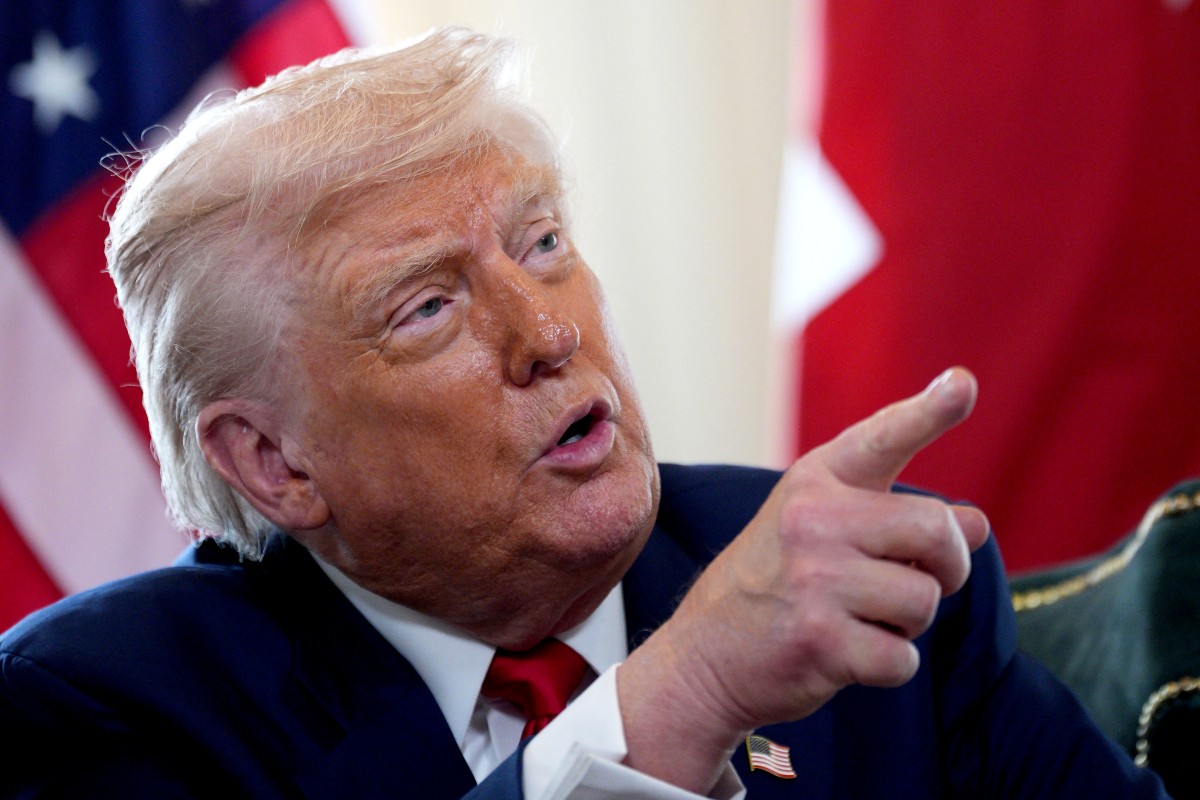Tokyo, Japan — Donald Trump has announced a 100 percent tariff on semiconductors from firms that do not invest in the United States — sparking volatility in Asian chipmaker shares Thursday.
The US president unveiled the levy at the White House on Wednesday ahead of the imposition of sweeping tariffs on goods from dozens of countries, with chips so far exempt.
It comes with the United States and China locked in a high-stakes race to develop the high-end semiconductors used to power artificial intelligence systems.
“We’ll be putting a tariff of approximately 100 percent on chips and semiconductors, but if you’re building in the United States… there’s no charge,” Trump said.
He did not give a timetable for the new levy, which he has repeatedly threatened in the past, to be enacted.
Arisa Liu, senior semiconductor researcher at the Taiwan Institute of Economic Research, said it would impact the “strategic direction of global semiconductor companies”.
“Since the United States is the world’s largest player in AI and related high-performance computing, this will have a relatively greater impact on companies involved in advanced processes,” she said.
“The highest-end semiconductors will be excluded,” Alicia Garcia-Herrero, chief economist for Asia Pacific at Natixis, told AFP.
But “this kills producers of low-end chips”, including those based in Malaysia or China, she warned.
On Thursday, shares in Taiwan’s TSMC — world’s largest contract maker of chips, which counts Nvidia and Apple among its clients — soared nearly five percent after the government said the company would not be affected.
Taiwan is a global powerhouse in semiconductor manufacturing, with more than half of the world’s chips and nearly all of the high-end ones made there.
‘Fight for Malaysia’
Trump has previously accused Taiwan of having stolen the US chip industry, and earlier this year, TSMC unveiled a plan to invest an extra $100 billion in the United States.
Samsung Electronics, which is pumping billions into the United States, rose more than two percent in Seoul, but a range of Japanese chip-making shares sank on the news.
Apple is also investing an additional $100 billion in the United States, Trump and the US tech giant’s CEO Tim Cook announced Wednesday, with Cook calling it “the largest investment Apple has made in America”.
Malaysian trade minister Zafrul Abdul Aziz told parliament on Thursday that the country, a key chip manufacturing hub, was seeking an explanation from the US side.
“We will continue to fight for Malaysia to ensure that any policy changes or exemption criteria are communicated and negotiated in advance, and that Malaysia’s position as a strategic partner is preserved,” he said.
Chiang Min-yen, a non-resident fellow at the Research Institute for Democracy, Society, and Emerging Technology, said the tariff would hit legacy chipmakers who don’t have the deep pockets to invest in the United States.
“Most of the legacy chip manufacturers in Taiwan, in the US, even in Japan… all face very serious, unfair market competition from Chinese competitors,” he said.
If US policies undermine these companies’ production efficiency, the Chinese competitors “will be able to more easily enter the global market” and come to dominate the field in the future, Chiang told AFP.
That “would be very harmful for US industrialization policies”, he warned.
“In the end, we may have to rely more on the Chinese legacy chips, and it would hurt our cybersecurity or even national security.”








